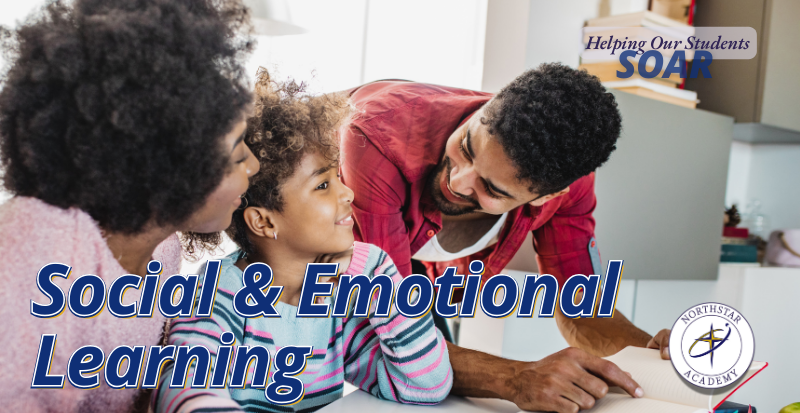Social and Emotional Learning (SEL)

Over the past few months, we’ve focused on regulation—how students manage their learning processes and emotions to thrive in an online environment. Regulation is a vital part of how we live and learn well, but it’s just one piece of a bigger picture. Social and Emotional Learning (SEL) takes it a step further by helping us understand how to live in right relationship with God and others.
A Christian Approach to SEL
Many SEL programs emphasize self-improvement and self-fulfillment—helping students become the best version of themselves regardless of how it impacts others or aligns with God’s will. As
Christians, we take a different view: SEL is not about achieving personal success but about living in community as God designed us to—reflecting His love and character in all we do.
Tyler Groves, author of Growing with One Another: Social and Emotional Learning in the Christian Perspective, points out that while secular SEL often aims at self-actualization, the Christian
approach focuses on discovering and fulfilling our God-given purpose alongside others.
Biblical Foundations of SEL
- Self-Awareness: Instead of focusing on ourselves, we seek God’s insight into our hearts (Psalm 139:23-24), managing our emotions in submission to Him.
- Self-Management: Emotions aren’t inherently wrong, but they must be guided by God’s wisdom (James 1:19, Ephesians 4:26).
- Social Awareness: We look beyond ourselves, seeing others as God sees them—worthy of love and compassion (Philippians 2:3-4).
- Relationship Skills: Building relationships is a spiritual calling, not just a social skill (Colossians 3:13).
Responsible Decision-Making: Our choices aren’t about self-fulfillment but about seeking God’s will (Proverbs 3:5-6).
Why Does It Matter?
Students today are craving connectedness and authentic relationships. As parents and educators, it’s our responsibility to model these skills—being humble, admitting our mistakes, and striving to live in right relationship with God and others.
Practical Applications for Families:
- Grades 1-4: Teach children to pray through their feelings and model healthy responses.
- Grades 5-9: Guide students to think about how their actions impact others and encourage empathy.
- Grades 10-12: Challenge older students to reflect on how their choices align with God’s will.
By focusing on these practical applications, we help students build Christ-centered relationships and thrive in community as God intended, fostering social and emotional growth rooted in biblical principles.
** Content and ideas in this article were inspired by the online workshop, "Social & Emotional Learning in Christian Perspective" presented by Joe Joy Roberts (Friendzy) in conversation with Tyler Groves on March 14, 2024.

